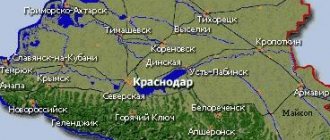Home / Real estate / Land / Ownership / Forms of ownership
Back
Published: 07/14/2017
Reading time: 12 min
0
421
The presence in the civil legislation of the Russian Federation of several different forms of ownership in which property may be located provides the opportunity to own it to many different entities.
One of the basic rights of property is public, which applies to real estate owned by the state. Next, the concept of this type of right, the grounds for its occurrence, as well as the distinctive features will be examined in more detail using the example of this type of real estate such as a land plot.
- Concept and legislative regulation
- Reasons for occurrence
- What areas can be publicly owned?
- Rights and obligations of participants
- Differences from private property
Concept and legislative regulation
Along with legal entities and citizens, the state in the Russian Federation acts as a separate and completely independent subject of law. Therefore, a very large share of real estate (not only land, but also buildings and structures) is publicly owned.
The public form of ownership implies that the property belongs to the following public entities:
- the state as a whole;
- a specific subject of the Russian Federation (represented by its executive authorities);
- to a separate municipality.
Public property rights are divided into two groups:
- state;
- municipal.
For a long time (almost the entire last century), it was public property (specifically state property) that was the main and, in most cases, the only form of ownership of this type of real estate such as land.
And only a couple of decades ago, the process of privatization began, that is, the registration of private rights to state or municipal property by legal entities and individuals.
The main documents with the help of which legislative regulation of public ownership is carried out are the Land and Civil Codes of the Russian Federation. Also, all legislative acts and Decrees of the Government of the Russian Federation that affect this issue should be taken into account.
Definition of property
Attention!
If you need help with academic work, we recommend turning to professionals. More than 70,000 experts are ready to help you right now.
Cost calculation Guarantees Reviews
Property is both an economic and legal category.
The legal content of property is the right to own, use and dispose of tangible and intangible assets.
Rights are ensured and regulated by legal norms within the framework of civil law.
The economic content of property is the social relations that arise regarding the ownership of property objects, their division and redistribution.
It is the actual relations regarding the property that are considered, and not the formal owners and formal rights that exist only on paper.
Reasons for occurrence
The Land Code of the Russian Federation provides for a separate chapter 3, which regulates issues related to land ownership rights. In particular, this chapter provides articles with the grounds for their occurrence in various cases, among which it is worth highlighting:
- Art. 17 of the Land Code of the Russian Federation, devoted to the grounds for the emergence of federal ownership of land (that is, belonging to the Russian Federation). This type of law covers the following areas:
- recognized as such in accordance with current federal laws;
- the right to which arose during the delimitation of state property;
- acquired on the grounds provided for in civil legislation.
In accordance with Art. 218 of the Civil Code of the Russian Federation, the grounds for the emergence of property rights include:
- carrying out a legal transaction (purchase and sale, donation, exchange or other type of agreement for the alienation of property);
- obtaining a plot that does not have a legal owner (if the latter is unknown, voluntarily refused or was deprived of rights to it);
- creation of a new site (for example, by dividing or merging it).
Each of these grounds must necessarily be in accordance with the requirements of the law (mainly civil).
- Art. 18 of the RF Land Code provides for the same grounds for the emergence of property of subjects of the Russian Federation as in the previous case, as well as one more additional one:
- allocation free of charge from federal property.
Taken together, the property of the Russian Federation and the constituent entities of the Russian Federation constitutes state property.
- Art. 19 of the Land Code of the Russian Federation contains the same grounds for the formation of municipal property that have already been listed.
It is obvious that these grounds are almost identical, only in some cases there are their own characteristics. It is worth considering that for certain types of land plots, the law allows only a public form of ownership; they cannot be private.
Such features will be discussed in more detail below.
Laws of the Russian Federation on forms of ownership
The fundamental laws clarifying the rights of land users are:
Constitution of the Russian Federation , Articles 8, 9, 36. Article 8 establishes the equal values of different forms of ownership. In Art. 9 and 36 explain the concepts of private land ownership.- Civil Code of the Russian Federation , Ch. 17 considers the emergence of real rights to land, including different forms of ownership, transactions with plots, lease, perpetual use, easement, etc.
- Land Code of the Russian Federation (current edition since 2019) in Chapter 3, Art. 15-19 regulates in detail the emergence of rights to use land plots and the disposal of this property by the owners. They can be the state, a subject of the Russian Federation, a municipality, citizens and legal entities.
Reference! On the basis of these laws, land ownership rights are implemented, including ownership, use, disposal of the site, and obtaining benefits from the use of the land.
What areas can be publicly owned?
First of all, the plot must comply with the general requirements that are put forward in the law to it as an object of ownership:
- presence of established boundaries;
- a specific location or exact address;
- registration with the state cadastral register.
Otherwise, state or municipal authorities can own land with virtually no restrictions. It is worth highlighting certain types of plots that can only be in state ownership:
- lands of forest and water funds (in the latter case, water bodies must be in federal ownership);
- specially protected areas that are of federal significance;
- lands of defense and security;
- reserve lands, subject to the placement of federal real estate on them;
- lands of settlements, transport, communications, industry, agricultural purposes, television and radio broadcasting, environmental and cultural significance, computer science, energy and space purposes;
- areas under the surface of which there are subsoil of federal significance.
This list is not exhaustive; therefore, federal and regional laws of the Russian Federation may define other additional grounds for land to be in state ownership only.
As for the municipal one, any types of plots belonging to both the state and private individuals can be transferred to it (for example, in the event of their death or voluntary abandonment of the land).
Basic forms
In Russian legislation, ownership of land plots is divided into 4 forms. All forms of land ownership are enshrined in the above articles of the Constitution.
The Land Code of the Russian Federation details the basic concepts, defining which lands can only be state-owned or only municipal.
The table shows the fundamental forms of ownership and forms of subjectivity.
| Forms of ownership of land plots | |||
| State | Municipal | Private | Other forms |
| Federal Subjects | Administrative districts of cities, villages, prefectures | Individual Legal entity | General Joint Share, etc. |
State
This form includes federal possessions - lands belonging to the Russian Federation and land of constituent entities of the Russian Federation.
Federal ownership applies to land plots that have not been transferred to other owners.
These are lands intended for the implementation of the powers of government bodies, defense and security needs, and national needs. Federal ownership excludes the presence of ownerless memory devices.
Federal authorities manage the land ; strictly mandatory use of all plots is not provided. The boundaries of ownership are demarcated between the lands of the constituent entities of the Russian Federation.
Important! Memory can be transferred for disposal to legal entities in cases where this is permitted by law. The rent generated from this is used for the people's interests.
Federal subjects
These are lands within the boundaries of the territories of the subjects. The purpose is to provide solutions to the problems facing the region, territory, and republic.
The distinction is made between federal and municipal lands. The land plots are administered by state agencies and local governments through the adoption of legal documents.
The economic use of land plots is carried out by unitary state enterprises, to which the powers to dispose of lands in the economic interests of a constituent entity of the Russian Federation are delegated to solve social problems. The benefit for the regional budget lies in the appropriation of part of the rent in the form of rent and land tax.
Municipal
These are lands owned by administrative-territorial units. Land plots of districts, cities, rural settlements, prefectures.
Their purpose is to satisfy the socio-economic needs of the population living in a given territory. The use of land is carried out in strict accordance with the purpose of the sites.
Private form
Private owners of land plots are individuals and legal entities.
They dispose of the land and use it at their own discretion.
But due to the classification of land as a particularly valuable resource, landowners have obligations to other private owners and the state.
Private ownership of land can be of two types - individual and collective. For example, land under an apartment building. Other forms of land ownership - shared, common and others - can be considered equivalent to this category.
Rights and obligations of participants
Public lands may, in some cases, be provided for use by citizens and legal entities (on the basis of lease, permanent perpetual use or ownership). Moreover, the specific set of rights and obligations of these persons will directly depend on the specific right on which he receives the property. General rights include:
- the ability to use the land at your own discretion (including growing various plants, raising animals, and engaging in other types of economic activities);
- the right to erect buildings on it;
- the opportunity to carry out entrepreneurial activities;
- the right to transfer land for use to third parties (but not always).
It is worth considering that all these rights are limited by the type of permitted use of the site, which the owners must take into account when operating it.
For example, if the land is intended for agriculture, but does not allow the construction of residential buildings, then it will not be possible to build them legally. Therefore, the main responsibility of each owner is to use the public land provided to him only for the intended purpose.
Other responsibilities may include:
- compliance with the law when operating the allotment;
- payment for it (if its provision was not free of charge);
- granting the right to limited use of land to other citizens (that is, easement) in cases established by law;
- ensuring the safety of individual objects located on the territory of the allotment (if they are subject to special protection);
- other duties established by current legislation.
When allocating a plot of land on a lease or free use basis, this transaction must be documented with the help of an appropriate agreement. It is in this document that the mutual rights and obligations of both parties will be officially established.
Drawing up an act of transfer of a land plot to a land donation agreement will help protect your rights. Large families can receive land on preferential terms. Read more about this in our article. To carry out land surveying, you will need to collect a package of certain documents. You will find the list here.
By granting rights over public property to a private entity, the state pursues the goal of delegating the management of this property to another person in exchange for a guaranteed income in the form of, for example, rent. Taking into account the need to prevent corruption, the rules governing the provision of real estate to private individuals are of particular importance. For land relations, such a normative legal act is the Land Code of the Russian Federation (hereinafter also referred to as the Land Code of the Russian Federation), which is currently at the stage of significant reform. On March 1, 2015, the Federal Law of June 23, 2014 N 171-FZ “On Amendments to the Land Code of the Russian Federation and Certain Legislative Acts of the Russian Federation” (hereinafter referred to as Law N 171-FZ) comes into force in full, which significantly changes the rules for the provision of land plots. This Law was a response to criticism of the RF Land Code by both representatives of academic science and business.
Let us recall that currently the Land Code of the Russian Federation provides for three procedures for the provision of land plots: - at auction; — without bidding with preliminary approval of the location of the object; - no bidding. In accordance with Article 30 of the Land Code of the Russian Federation, an interested person can obtain a land plot as ownership or lease at auction. Land plots are provided exclusively for rent with prior approval of the location of the facility. In this case, competitive procedures are not carried out. At the same time, several situations are legally established when the provision of land plots with preliminary approval of the location of the object is not allowed: 1) if the land plot has already undergone cadastral registration, which excludes the possibility of carrying out the procedure for selecting a land plot according to the rules provided for in Article 31 of the Land Code of the Russian Federation; 2) if land use and development rules have been approved in relation to the territory of a settlement or part of it (clause 11 of Article 30 of the Land Code of the Russian Federation); 3) for housing construction, except for cases provided for by law (clause 2 of article 30.1 of the Land Code of the Russian Federation). The range of such exceptions is very limited. At the same time, for the construction of commercial real estate, a land plot can be provided without holding a tender, despite the fact that this area of development is often as competitive and profitable as residential construction. The non-transparent procedure for preliminary approval of the location of an object does not always allow the sale of a land plot on the most favorable terms for the public owner and does not ensure equal access for private individuals to land resources. Now, amendments to the Land Code of the Russian Federation provide for an exhaustive list of cases when a land plot can be provided without holding a tender. Thus, Law N 171-FZ includes Article 39.3 in the Land Code of the Russian Federation, which provides for ten cases when the sale of a land plot is carried out without holding a competition, and Article 39.6 of the Land Code of the Russian Federation, as amended, establishes thirty-two grounds for the provision of a land plot for lease without holding a tender. Among the advantages of the new provisions of land legislation is the fact that the Land Code of the Russian Federation, as a codified act, systematized all cases of non-competitive provision of land plots and eliminated a number of contradictions that exist today in the legislation. For example, the amendments resolved the issue of “double trading”. This problem lies in the fact that in some cases the legislation provides for the holding of tenders for the right to carry out economic activities that involve land use. At the same time, the terms of the auction do not provide for the conclusion of a purchase and sale or lease agreement for a land plot with the winner. Due to the principle of payment for land use, a person who extracts the useful properties of public land is obliged to pay rent or land tax. Consequently, the person who wins the auction is obliged to conclude a lease agreement with the public owner or purchase the land plot in accordance with the general rules of the Land Code of the Russian Federation. A paradoxical situation arises: a person who has received the right to carry out activities on a land plot may lose the bidding for the acquisition of rights to a land plot. In particular, Law N 171-FZ includes in the list of grounds for the provision of land plots without bidding the provision of a land plot necessary for carrying out the activities provided for in the concession agreement to the person with whom the concession agreement was concluded (Clause 23 of Article 39.6 of the Land Code of the Russian Federation as amended ). This rule eliminates the uncertainty regarding the validity of granting land under a concession without bidding, which has existed since the entry into force of Federal Law No. 115-FZ of July 21, 2005 “On Concession Agreements.” This decision can only be welcomed, since the concession agreement is the only form of public-private partnership enshrined in federal legislation, which is becoming increasingly important in the Russian economy. Projects with a significant amount of investment are being implemented on the basis of concession agreements, so there should be no uncertainty in such an important issue as land rights. The legislator has also resolved the problem of “double bidding” when concluding a hunting agreement. Now a person who has received the right to carry out activities in the field of hunting on the basis of an appropriate agreement has the right to be provided with a land plot for rent without bidding (Clause 24 of Article 39.6 of the Land Code of the Russian Federation as amended). In addition, according to the amendments introduced by Law No. 171-FZ, land plots can be provided to legal entities by order of the Government of the Russian Federation or the highest official of a constituent entity of the Russian Federation for the placement of socio-cultural facilities, the implementation of large-scale investment projects, provided that these facilities comply with investment projects to the criteria established by the Government of the Russian Federation or the law of the constituent entity of the Russian Federation, respectively. These provisions exclude the need to hold tenders for the right to conclude a lease agreement for a land plot for the construction of preschool, educational institutions, etc. It is obvious that in most situations, the construction of such facilities is the implementation by the state of a social function, and for the acquirer of such a right it is a matter of social responsibility of the business, which makes the use of competitive procedures unjustified. Now this practice takes place, since land legislation often does not make it possible to implement such a project without holding a tender. Reducing the time and financial costs associated with holding auctions should have a beneficial effect on providing residents of populated areas with social and cultural facilities. The most significant innovation of Law N 171-FZ is the rules on the targeted provision of land plots for the implementation of large-scale investment projects. Despite the fact that under the current version of the Land Code of the Russian Federation at the regional level there were precedents for the establishment of similar rules, this raised questions. For example, the Law of St. Petersburg dated June 17, 2004 N 282-43 “On the procedure for providing real estate objects owned by St. Petersburg for construction and reconstruction” provided that a land plot can be leased without bidding to “strategic investors” . Subsequently, by a decision of the arbitration court, the relevant norms were declared invalid as contrary to the Land Code of the Russian Federation and the legislation on the protection of competition <1>. In principle, the consolidation of such rules at the federal level can be supported, since, indeed, projects that are of significant importance for the Russian Federation or a constituent entity of the Russian Federation should be implemented by legal entities that have the appropriate reputation, experience and capabilities. In the practice of competitive distribution of public land, there are often cases when the auction is won by a company created a short period of time before such a competition, which does not have any experience in implementing similar projects. Bidding guarantees the public owner the maximum profit from concluding an agreement with a specific counterparty, but not the timely completion of the project. Despite the fact that the main benefit from the construction is received by the developer, the constructed facility will become an element of a comfortable urban environment created in accordance with the approved documents of territorial planning and urban zoning. Now federal legislation will ensure not only the profitability, but also the effectiveness of the use of public land. In addition, the rules on the targeted provision of land plots for the implementation of large-scale investment projects will contribute to the development of public-private partnerships at the regional level. Currently, there is no Federal Law on Public-Private Partnerships, however, corresponding laws have been adopted in many constituent entities of the Russian Federation. Typically, such laws provide for rules on the provision of land plots to a private partner for lease without holding a competition. Despite the obvious expediency of such rules, their legality, taking into account the current provisions of the Land Code of the Russian Federation, is questionable. The innovation under consideration will allow regions to implement public-private partnership projects without the risk of violating land legislation or exceeding authority in this area. At the same time, the real effect of the amendments can only be assessed after the Government of the Russian Federation adopts the criteria for large-scale investment projects at the federal level and approves similar criteria at the regional level. If only really important projects that can be implemented only by some participants in the real estate market fall into the scope of targeted provision of land plots, the introduction of new rules can only be supported, however, in highly competitive areas, the rules on the provision of plots at auction should be preserved in order to obtain maximum budget income for a public entity . In paragraph 2 of Article 39.11 of the Land Code of the Russian Federation, as amended, the legislator gave a negative answer to the question about the possibility of combining several land plots into one auction lot. Previously, there was no clear regulation on this issue. The courts considering the relevant disputes came to opposite conclusions. Thus, in the Resolution of the Federal Arbitration Court of the North-Western District dated February 20, 2012 in case No. A56-18722/2011, it was concluded that the combination of several plots into one lot violates Articles 15 and 17 of the Federal Law “On the Protection of Competition”. The Federal Arbitration Court of the Ural District came to similar conclusions <3>. However, according to the Federal Arbitration Court of the Central District, such actions comply with land legislation and competition protection legislation <4>. The Federal Arbitration Court of the Northwestern District took the same position in 2011 <5>. Now the law directly prohibits the combination of several plots into one auction lot. At the same time, the negative effect of such regulation is insignificant, since several land plots are usually required to implement large-scale construction projects. Now such projects should fall within the scope of targeted provision of land plots, which will allow the public owner to provide the necessary plots to a private individual. In those cases where a project is being implemented that does not fall under the large-scale criterion, a ban on combining several sites will have a beneficial effect on competition in the investment and construction sector.
Territory planning
Moving from the issues of providing land plots to the issues of their use, one cannot fail to note the problem of preparation of urban planning documentation by the public authorities. Urban planning documentation, which includes documents of territorial planning, urban zoning and territory planning, is designed to ensure the creation of a comfortable environment for living, recreation, etc. Among the principles of the Urban Planning Code of the Russian Federation (hereinafter referred to as the RF GRK) the following are named: 1) ensuring sustainable development of territories based on territorial planning and urban zoning; 2) implementation of construction on the basis of territorial planning documents, land use and development rules and documentation on territory planning (Article 2 of the Civil Code of the Russian Federation). Sustainable development of territories in the understanding of the Town Planning Code of the Russian Federation is ensuring, when carrying out town planning activities, safety and favorable conditions for human life, limiting the negative impact of economic and other activities on the environment and ensuring the protection and rational use of natural resources in the interests of present and future generations (subclause 3 Article 1 Civil Code of the Russian Federation). By adopting the relevant urban planning documents, public entities guarantee the sustainable development of the relevant territory and fully determine the legal regime of land plots that can be provided and developed. Given that the vast majority of undeveloped land within populated areas is usually publicly owned, such regulation is essential. Understanding the importance of developing land use and development rules, the federal legislator actually introduced sanctions for those municipalities that do not develop urban zoning documents. In accordance with paragraph 3 of Article 51 of the Civil Code of the Russian Federation, in the absence of land use and development rules, the issuance of construction permits is prohibited, except in cases provided for by law. The approval of land use and development rules in municipal areas should have been completed before June 30, 2013, in urban settlements and urban districts - by December 31, 2013, in rural settlements - by June 1, 2014. Thus, a public entity loses the opportunity to receive income from such a plot of land under an agreement on its provision for construction. In addition, the inability to determine the type of permitted use in such a situation deprives the public owner of the opportunity to independently carry out construction in accordance with the law. This hinders the implementation of territorial planning documents, government programs and, ultimately, the creation of a comfortable urban environment. Decree of the Government of the Russian Federation dated July 29, 2013 N 1336-r approved the “road map” “Improving the legal regulation of urban planning activities and improving the business climate in the construction sector,” which established clear deadlines for the approval of draft land use and development rules. However, urban zoning documents have not yet been developed everywhere. In this regard, the wider application of sanctions provided for local government bodies and their officials by Federal Law of October 6, 2003 N 131-FZ “On the General Principles of the Organization of Local Self-Government of the Russian Federation” is relevant. The actual application of such measures will create incentives for municipal authorities to implement regulations in the field of public property management.
Investment allocations for infrastructure
A serious problem in the management of a public land fund is the issue of establishing investment obligations for a person who has acquired rights to a land plot for the purpose of capital construction or reconstruction. Thus, a subject of the Russian Federation or a municipality often requires the developer to make a contribution to the development of infrastructure or other investment payment or to fulfill in kind a certain generally beneficial obligation (for example, the construction of a preschool building or utility networks with their subsequent free transfer to public ownership) as a condition for issuing initial permitting documentation for construction. Despite the fiscal nature of such payments <7>, there is no regulation at the federal level. Subjects of the Russian Federation, at their own discretion, regulate relevant relations, which creates unequal conditions for access to construction in different subjects and municipalities. Due to the lack of uniform rules, the interests of developers suffer, who, in turn, shift payments to buyers of constructed real estate. Currently, the position of the Supreme Arbitration Court of the Russian Federation on the legal nature of such payments is that they are of a civil nature <8>. That is, based on Article 421 of the Civil Code of the Russian Federation, the public owner is free to include them in the lease agreement or investment agreement with the developer. This solution is not successful, since it does not comply with the provisions of the Tax Code of the Russian Federation and does not encourage the legislator to regulate this payment in the manner established for fiscal duties. The lack of uniform and transparent rules for establishing investment obligations and protecting private investors when providing land for construction has a significant negative impact on the possibility of implementing construction projects on public land. At the same time, the majority of land plots are publicly owned, and most public entities simply do not have the means and opportunities for independent implementation, for example, of housing construction.
Responsibilities of a land user
Land, unlike other objects of property rights, is a natural resource, which determines its special legal status. In this regard, the legislation assigns certain responsibilities to users of land plots, which ensure the preservation of the land as part of nature and the rational exploitation of the capabilities of individual plots.
Among the responsibilities, the Land Code identifies:
- Ensuring the targeted use of land resources in accordance with the rules established by government agencies and the law.
- Ensuring the safety of engineering signs and other distinctive devices installed by employees of public services and private cadastral engineers.
- Periodic or continuous implementation of measures to ensure the safety of the environment, especially fire safety measures.
- Payment of land tax established by law.
- Compliance with construction standards and the general urban planning plan when constructing buildings on the territory of one’s site.
- Prevention of land pollution, land reclamation depletion, and reduction of fertility.
Land legislation contains many rules aimed at limiting the rights of users in relation to their lands. Thus, the norms of the Land Code are aimed specifically at ensuring the preservation of the original properties of the country’s land resource for the benefit of future generations.
Types of property
Depending on who is the subject of the property, that is, has the rights to it, the following types of property :
What type of ownership will be decisive depends on the historical and cultural context. Just 30 years ago, public ownership prevailed in our country. After the interests of individual citizens began to be placed above the interests of the collective, property was denationalized and the majority of enterprises were privatized. The planned economy transitioned to a market economy - private property became a more common type of property.
Today every citizen has the right to own property. He can realize the legal content of property
- possession – actual (real) possession of an object of property;
- use – the ability to use property for benefit, income or consumption;
- disposal - the ability to determine the future fate of property (transfer it into ownership of another person, renounce the right to it, destroy it, etc.).
Features of land ownership
The specifics of land ownership are established by the Land Code. They should not contradict the general norms in the Civil Code of the Russian Federation.
- Not all land plots may be privately owned. The list of such lands is established by the Land Code and other Federal Laws;
- Citizens who own land must have legal capacity and capacity.
The legal capacity of a citizen is his ability to have civil rights and bear responsibilities (civil capacity). It is recognized equally for all citizens. The legal capacity of a citizen arises at the moment of his birth and ends with death (Article 17 of the Civil Code of the Russian Federation). Private property of individuals is characterized by the transfer of rights by inheritance, which also implies the possibility of disposing of property in the event of death by drawing up a will, acquiring rights by paying a share by a member of a housing, housing construction, country house, garage or other consumer cooperative, etc. - When transferring ownership from one owner to another, the land plot participates in turnover according to the principle of the unity of fate of the land plot and the property located on it. That is, if the owner sells a building or house, then upon sale the rights to the land plot are transferred to the buyer.
- Ownership of a land plot must be obtained as a result of legal facts, since according to Article 16 of the Land Code of the Russian Federation, if the land is not private or municipal, then it is considered state property.
- Some land plots have their own characteristics regarding the regulation of property rights. For example, agricultural land. You will learn more about these features by reading this article.
Legal status of land owner
In a general sense, the status of a user differs little from the owner of a land plot. However, in a legal sense, cases are allowed when users may be persons who do not have the right to own property. In turn, the owners always have all the rights of users, unless by agreement or legal requirement they have granted these powers to other persons.
Unlike persons who have exclusive rights to use the site, the owner has the right to:
- sell or donate a plot;
- rent it out;
- used as collateral for debt obligations.
But due to the specifics of the property - land, the owner is assigned the same responsibilities as those defined by the Land Code for users of land plots.
Unlike users, who bear responsibilities individually and only for their own actions, owners are also responsible for the actions of those persons for whose use they provided the land.
Thus, along with a wider list of powers, owners also receive more responsibility.
What is a property
An object of property is material and intangible goods to which ownership rights apply.
The property may include:
- real estate (land plots and buildings, water bodies, subsoil and forests, etc.);
- movable property (vehicles, raw materials, goods, securities and cash, etc.);
- works and services;
- valuable information;
- intellectual property (products of intellectual (creative) activity in the field of science, art and production);
- intangible benefits - benefits of a non-property nature, devoid of material content and not subject to assessment, which a person possesses from birth or by force of law (the right to life and health, the right to name, honor, dignity, business reputation, privacy, etc.)
Civil legal personality of public legal entities
1. Subjects of civil law, along with individuals and legal entities, are also public legal entities.
The participation of the latter in civil law relations is always relevant and has a long history. In accordance with paragraph 1 of Art. 124 GK
public legal entities include: the Russian Federation, constituent entities of the Russian Federation, municipal entities.
2. The participation of public legal entities in civil legal relations is characterized by a number of features:
1) in general, such participation is due to the need to carry out the functions assigned to them - economic, socio-cultural, ensuring the safety and protection of the population, etc. Public legal entities, entering into civil relations, cannot proceed from any private interests; here only goals and objectives that make it possible to exercise public power in the most effective manner should be pursued. This should be taken into account in the process of will-formation and expression of the will of public legal entities;
2) the state as the bearer of power (sovereignty) is the most important subject of public law. However, in civil legal relations the power of the state, as well as other public legal entities, and their special position as subjects of public law should not be manifested;
3) the legal capacity of the state and other public legal entities as participants in civil legal relations is of a specific nature. Its nature and content are determined by the fact that the named subjects are called upon to perform, first of all, their basic, public functions; participation in civil legal relations for them is of an auxiliary (subordinate) nature in contrast to the legal capacity of legal entities.
Regarding the legal nature of the legal capacity of the state and other public legal entities, different positions have been expressed in the literature. Some authors consider the legal capacity of the state to be general (universal)1, while others treat it as special. A point of view has also been expressed according to which the legal capacity of the state is targeted: it follows from the function of the bearer of public power that the state performs in the interests of the entire society.
Considering that the state and other public legal entities can only have such civil rights and obligations that correspond to their goals and objectives enshrined in legislation, one should agree that the legal capacity of these public entities is of a special rather than general (universal) nature;
4) rules are applied to public legal entities that determine the participation of legal entities in relations regulated by civil law, unless otherwise follows from the law or the characteristics of these entities (clause 2 of Article 124 of the Civil Code). Consequently, the phenomenon of the state (another public legal entity) cannot be identified with the structure of a legal entity. According to its organizational structure, the procedure for creation, forms of property separation, the procedure for carrying out activities, etc. a public legal entity is certainly different from a legal entity.









